 |

Tools:








Critical Thinking Series Challenges Homeschoolers' ThoughtFamilies Appreciate Worthwhile Software and Workbook Exercises
| “I wish I had used a product like this with my older children.” — Sue Christensen, mother |
TDmonthly Magazine’s Homeschool Roundtable families exercised their brains in a fun way when they reviewed Building Thinking Skills software and workbooks from The Critical Thinking Co.
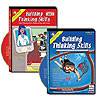 Building Thinking Skills by THE CRITICAL THINKING CO. Building Thinking Skills by THE CRITICAL THINKING CO.
Age: 4 to 18
Gender: Boys and Girls
Category: Educational
TDmonthly rating:

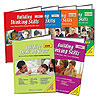 Building Thinking Skills Software by THE CRITICAL THINKING CO. Building Thinking Skills Software by THE CRITICAL THINKING CO.
Age: 7 to 12
Gender: Boys and Girls
Category: Software
TDmonthly rating:

What It Is: This series develops critical thinking skills related to analogies, spatial awareness, classifications, geometry concepts, graphic organizers and more. The workbooks are available for preschool ages through grade 12. Using a computer-game format, the software features 10 levels with more than 100 verbal and figural activities with adjustable difficulty levels. Unfinished games can be saved. Two titles are available for grades 2-3 and 4-6.
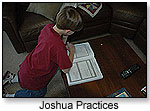 What the Moms Thought: “Since I’ve never overtly taught critical thinking skills to my children, I felt that this product filled a gap in my home schooling,” Christensen said. Dawson enjoyed watching Ethan (9) use the software. “I could hear his gears turning, perhaps thinking of relationships from different angles,” she said. Zuidema concurred: “I like the thinking skills that this system builds.” What the Moms Thought: “Since I’ve never overtly taught critical thinking skills to my children, I felt that this product filled a gap in my home schooling,” Christensen said. Dawson enjoyed watching Ethan (9) use the software. “I could hear his gears turning, perhaps thinking of relationships from different angles,” she said. Zuidema concurred: “I like the thinking skills that this system builds.”
“That a child can analyze and problem-solve in real life is much more important to a good education than simply being able to regurgitate facts,” Ledford said.
“I see some areas that will further develop [Alyssa’s (8)] abilities to describe and compare, including analogies, rankings and classifications,” Zuidema commented.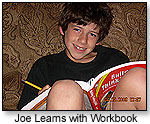
Ledford also liked the choice of format (software or workbook) since “either may be more appropriate to a particular child or a particular situation,” and the use of “a different color for each level … makes it easier to determine at a glance whose book/CD-ROM is whose.” Wilson liked the “coated, wipe-able cover” on the workbooks, and that permission to duplicate pages for use in a single household was given. Ledford and Wilson both appreciated the included answer key for the workbooks.
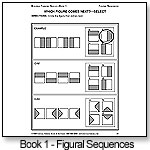 “I love that my kids enjoy using the software, that it gives them immediate feedback, and that they can use it without my help,” raved Christensen. Wilson liked that the instructions were both sound- and text-based, and that users could skip around from floor to floor. “Another plus was the ‘floor plan’ page,” she added, “giving children a visual reference to how much they had accomplished and which areas had yet to be completed.” “I love that my kids enjoy using the software, that it gives them immediate feedback, and that they can use it without my help,” raved Christensen. Wilson liked that the instructions were both sound- and text-based, and that users could skip around from floor to floor. “Another plus was the ‘floor plan’ page,” she added, “giving children a visual reference to how much they had accomplished and which areas had yet to be completed.”
What the Kids Thought: Since the Wilsons already use workbooks in their curricula, “Elise (9) enjoyed completing pages, confident in the familiarity.” Quite a few of the children preferred the software. Despite some difficulty, Alyssa (8) “enjoyed the game and its settings,” Zuidema reported.
“Joshua (10) enjoyed the crumpled paper, the tracing activity and matching shapes,” Christensen commented. Ben (6) was pleased when he saw “100%” at the end of a stage. The Christensen boys begged to play the software more but were “unimpressed” with the workbooks. “I’m sure they would have enjoyed the workbooks more if I’d introduced [them] before the software,” Christensen said.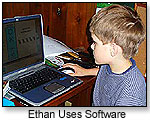
Ethan (9) liked the “combined games and lessons” on the CD, although neither he nor Sara (7) were interested in the workbooks, Dawson reported. Sara (7) found “the thickness of the workbook … daunting.” Joe (8) enjoyed “the challenge of analyzing the different situations.”
What the Kids Learned from this Toy: “Some computer skills, and some different ways of thinking,” Christensen reported. Ethan (9) “acquired valuable practice drawing analogies and defining/differentiating between classes and members,” and Sara (7) learned geometry vocabulary. Ledford saw Joe (8) work on “critical thinking skills, analyzing data, problem solving [and] logic skills.”
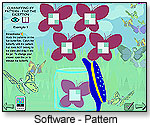 Timothy (15) pointed out that using the workbooks could provide practice for standardized testing. “We also found that the workbooks strengthened verbal and written communication skills, especially in the area of descriptive writing,” Wilson commented. Zuidema noted comparison, visualization and description-giving skills. Timothy (15) pointed out that using the workbooks could provide practice for standardized testing. “We also found that the workbooks strengthened verbal and written communication skills, especially in the area of descriptive writing,” Wilson commented. Zuidema noted comparison, visualization and description-giving skills.
How to Improve It: All of the moms reported software glitches, from unclear directions to incorrect scoring on a particular section to missing graphics.
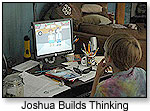 Ledford and Wilson would like to see perforated pages in the workbooks. Ledford suggested the software offer a way to keep track of each student’s progress and a log of activities attempted and completed. “The children agreed that each level should have its own scenario to encourage continuation,” Wilson noted. She would also like to “use the software on more than one system (desktop, laptop) without having to install it on each.” Ledford and Wilson would like to see perforated pages in the workbooks. Ledford suggested the software offer a way to keep track of each student’s progress and a log of activities attempted and completed. “The children agreed that each level should have its own scenario to encourage continuation,” Wilson noted. She would also like to “use the software on more than one system (desktop, laptop) without having to install it on each.”
Wilson recommended including the text of each individual question, and noted that her children preferred the ‘practice mode’ since it allows users to select categories and return to previous problems, while the ‘adventure mode’ does not. She thought it would be beneficial if the correct answer is provided when a question is missed. Zuidema suggested extending the storyline of the software by “getting a key that allows them to unlock the door to the next level.”
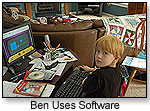 All moms but one thought the prices somewhat prohibitive. “However, I would definitely ask our library to acquire it, if possible,” Dawson said. All moms but one thought the prices somewhat prohibitive. “However, I would definitely ask our library to acquire it, if possible,” Dawson said.
Would You Want Another Toy Like This? “I’m looking forward to having them continue to use the software, expanding into analogies, graphic organizers, etc.,” Christensen said. “I wish I had used a product like this with my older children.” Dawson added, “My kids enjoyed it and I found many of the activities worthwhile.” Ledford remarked, “While the beginning-level workbook is too advanced for my 2-year-old, I definitely plan on using it with him.”
Roundtable participants were Sue Christensen with Joshua (10) and Ben (6); former corporate accountant Robbin Dawson with Ethan (9) and Sara (6); Susan Ledford, editor of the "Homeschool Resources Directory for SC,” with Victoria (12), Joe (8) and Griffin (2); Teresa Wilson, editor of “HOMES Newsletter,” with Timothy (15), Andrew (11), Elise (9) and Steven (7); and Jill Zuidema, former retail manager, with Alyssa (8).
 Writer's Bio: Writer's Bio: Susan Ledford is the writer, editor and publisher of the "Homeschool Resources Directory for S.C." She has been evaluating toys and games for TDmonthly's Roundtable reviews since 2005. She also is a homeschool veteran of seven years. Read more articles by this author
THIS BANNER IS AN AD:

• • • • • • • • • • • • • • • • • • | • • • • • • • • • • • • • • • • • |
Back to TDmonthly's front page
|  |
Advertise on TDmonthly

|

